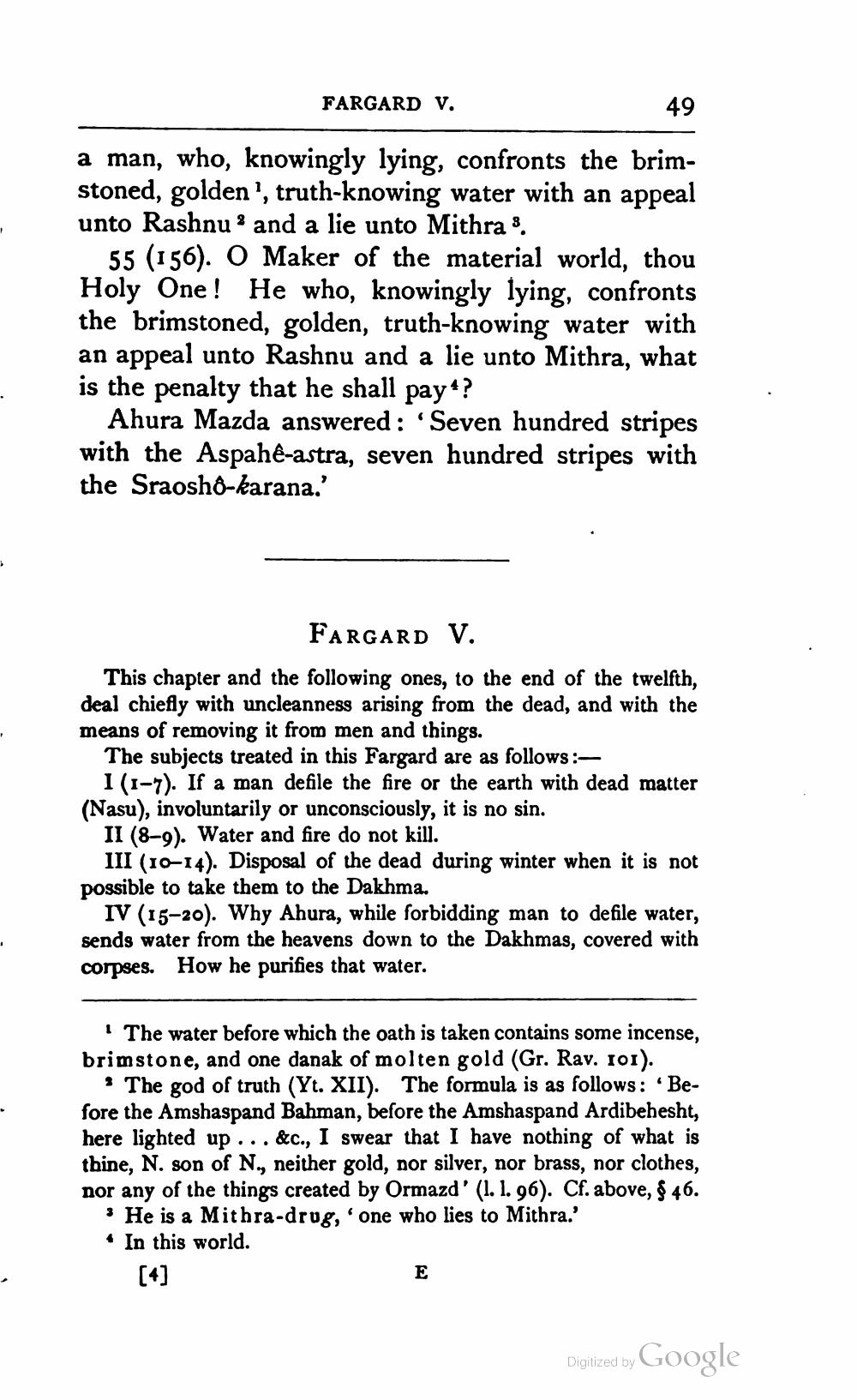________________
"
FARGARD V.
a man, who, knowingly lying, confronts the brimstoned, golden', truth-knowing water with an appeal unto Rashnu and a lie unto Mithra 3.
49
55 (156). O Maker of the material world, thou Holy One! He who, knowingly lying, confronts the brimstoned, golden, truth-knowing water with an appeal unto Rashnu and a lie unto Mithra, what is the penalty that he shall pay1?
Ahura Mazda answered: 'Seven hundred stripes with the Aspahê-astra, seven hundred stripes with the Sraoshô-karana.'
FARGARD V.
This chapter and the following ones, to the end of the twelfth, deal chiefly with uncleanness arising from the dead, and with the means of removing it from men and things.
The subjects treated in this Fargard are as follows:
I (1-7). If a man defile the fire or the earth with dead matter (Nasu), involuntarily or unconsciously, it is no sin.
II (8-9). Water and fire do not kill.
III (10-14). Disposal of the dead during winter when it is not possible to take them to the Dakhma.
IV (15-20). Why Ahura, while forbidding man to defile water, sends water from the heavens down to the Dakhmas, covered with corpses. How he purifies that water.
The water before which the oath is taken contains some incense, brimstone, and one danak of molten gold (Gr. Rav. 101).
* The god of truth (Yt. XII). The formula is as follows: 'Before the Amshaspand Bahman, before the Amshaspand Ardibehesht, here lighted up... &c., I swear that I have nothing of what is thine, N. son of N., neither gold, nor silver, nor brass, nor clothes, nor any of the things created by Ormazd' (1. l. 96). Cf. above, § 46. He is a Mithra-drug, 'one who lies to Mithra.'
In this world.
[4]
E
Digitized by
Google




